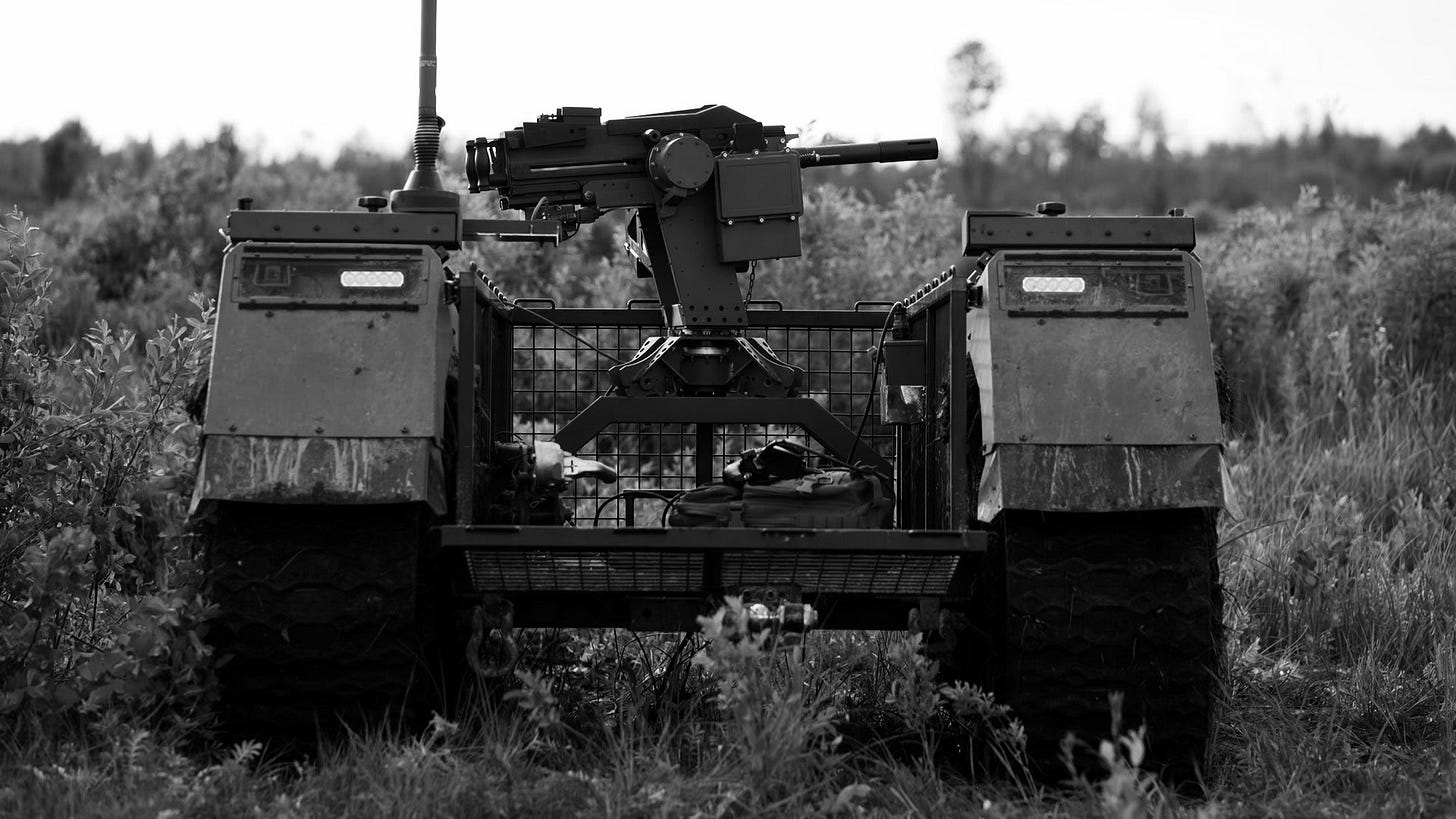Milrem and Frontline partner to power up Milrem’s THeMIS vehicles with BURIA grenade systems
With Russia offering a bounty for Milrem’s tanks, Frontline is supplying autonomous tech to keep them ahead of the game in Ukraine
Frontline Robotics, a Ukrainian startup that develops unmanned ground systems, is teaming up with Milrem Robotics, a developer of autonomous vehicles and other systems based out of Estonia. Milrem said it will integrate BURIA – Frontline's remotely-controlled Mk19 grenade launcher – into its own THeMIS vehicle.
Frontline has confirmed to Resilience Media that Milrem is not taking a strategic investment in its business as part of the deal, but from what we understand, the companies are seeing this as the start of a partnership and more collaborations in the future.
For context, Frontline recently raised a seed round of $800,000, with backers including the defense tech unicorn Quantum Systems, which has a 10% stake in the business. Milrem is majority-owned by the Edge Group based out of the United Arab Emirates.
Frontline CMO Mykyta Rozhkov told Resilience Media that the pair began to collaborate six months ago after meeting in late 2024 at a Darkstar bootcamp in Kyiv. What caught the attention of the Ukrainian startup, he said, was THeMIS' size and payload capacity. The vehicle is bigger and can carry not only the turret but more ammunition than the competition.
Ensuring the ongoing development of THeMIS is critical for another reason. For years, the Russian government-aligned Center for Analysis of Strategies and Technologies (CAST) has offered a bounty of 2 million roubles (around US$25,000) for a captured THeMIS UGV — which is a key component of Ukraine’s defence effort — allegedly to reverse engineer the UGV and feed its know-how into Russian blueprints for similar systems.
“We take it as a compliment,” Milrem’s director of marketing and communications Gert Hankewitz said to Resilience Media in response to the bounty on its vehicles.
Defense companies regularly partner and integrate their technologies. This partnership between Milrem and Frontline is distinct, however, in part because both products are already being used in live combat in Ukraine.
This also means the companies have been accruing live battlefield experience, which gets incorporated into further iterations.
The autonomous THeMIS can reach a speed of 20 kilometers per hour and recalculate to acquire targets within 80 milliseconds. During tests, the integrated systems were able to engage targets at a range of 1,100 meters.
The THeMIS, as it is now, is not the same vehicle which first entered Ukraine in 2022, said Raul Rikk, Milrem's capability development director.
Moreover, the THeMIS has been deployed in ways that have gone far beyond the use cases that Milrem originally envisioned. For instance, as Milrem’s chief sales officer Patrick Shepherd noted, it never expected to see the UGV used to deliver timber to construct fortifications at the frontline.
Unmanned logistics has been seen as an important complement to the proliferation of unmanned aerial vehicles: both help forces preserve life in the execution of basic and more complex military activities.
That has translated into business, albeit on a scale significantly smaller than defence companies in the West may recognise. Frontline Robotics, founded in 2023, appears to have grossed $180,000 in 2024 based on published financial data. It declined to comment on the figure but noted to RM that it has worked with 40 different units in the country.
Frontline unveiled the BURIA in early 2025, and it is now in serial production. Frontline said it had enough orders to utilize 100% of their capacities in Q1 2025 – a rarity in Ukraine, where money is often short. The price for BURIA is “under 20% of the cost of some Western systems,” Milrem’s Hankewitz told Resilience Media.
In the coming weeks, Frontline and Milrem said they will continue with tests, reviewing various battlefield scenarios to better calibrate the collaborative product.
The partnership comes in the wake of Frontline's alliance with Quantum System and represents the next step in its strategy of working with partners across the European defence industry.
“By integrating Ukrainian battle-proven solutions into top-tier European defence systems, we can equip Ukraine’s armed forces with the best weapons and boost their frontline capabilities,” Rozhkov said.


